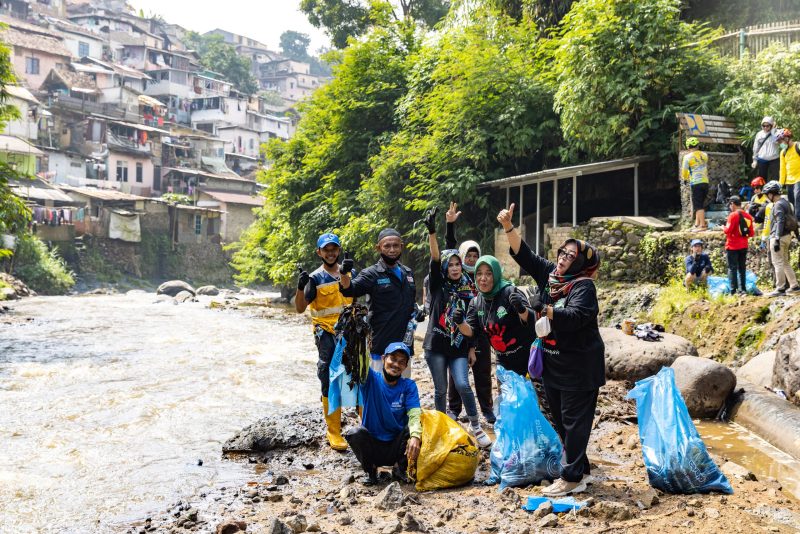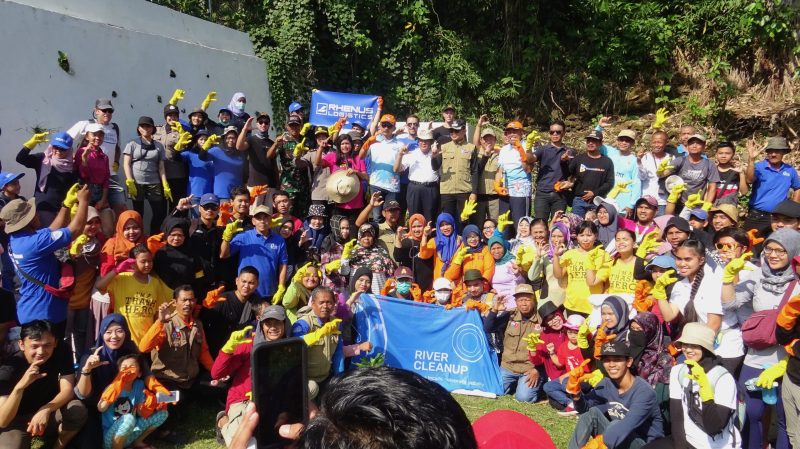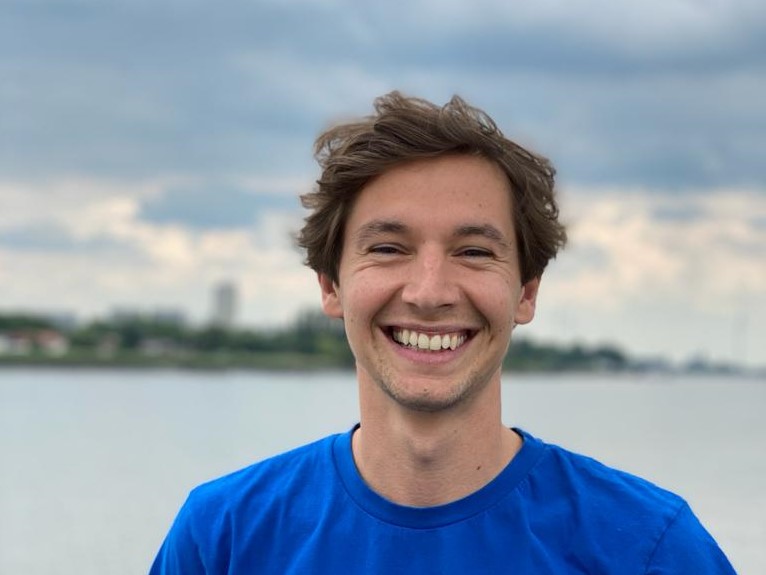The environment we live in is deteriorating and thankfully societal awareness of the issue is growing.
One of the myriad international organisations working to save the environment is River Cleanup. As the Head of Marketing at River Cleanup, Arno Doggen expresses his love for the planet and shares tips for how just about anyone can get involved in taking care of the environment’s wellbeing, on an individual and community level.
Hi Arno! We’d like to know more about you, please introduce yourself.
My name is Arno Doggen, I’m from Belgium, and I’m Head of Marketing at River Cleanup. I’ve always been interested in the environment and everything that grows and lives on the planet. From a 6-year-old child watching National Geographic instead of Disney all the way to today where cleaning up the planet is literally my job. My commitment to making the world a better place has now found its way into all aspects of my life.
I was active in the carbon offsetting market at the start of my professional career and organically grew into my role at River Cleanup. I really like the tangible and measurable impact we’re making on the environment and also enjoy the human interaction we get during our events.
On a personal level, I believe life is short and I try to live as much in the now as possible; enjoying my life every day, focussing on the positive, and sharing my passions with the people around me.
What’s a common misconception about living and maintaining a cleaner planet you often hear?
When it comes to joining a cleanup, most of the time it’s about practical things; “I don’t know where to start”, “I don’t have the right equipment”, “Where do I put my trash?”, and similar things. I think the main issue is that many people have the belief that what they do as an individual will never have any impact and I understand why they would think that. We’re experiencing an enormous environmental threat, with plastic pollution playing a vital role. Facing it can feel overwhelming. Any single human can never solve the problem. Only by working together will we have a chance to overcome this threat. In unity, there is strength.
What and when was the tipping point that made you decide you had to do something about the environment’s wellbeing?
Travelling for me is a big part of my self-development. You get immersed in new experiences, other landscapes, different cultures, and go outside your comfort zone. Anyone who travels a lot sees the world from different angles and learns from what he or she sees. I think that’s what happened to me. During my travels, I experienced nature as I never had before and developed an admiration for it. Not only for its beauty but for all it provides for us. Then, while scuba diving in Honduras, there was a dive where an incredible amount of plastic was just floating around us, washed into the sea from the islands and the mainland. The underwater landscape I had been enjoying for days now looked like an underwater landfill. A heart-breaking moment that initiated my journey in the environmental movement.
How do you personally partake in creating a cleaner planet?
First of all, I start at home, trying to use as few unnecessary items as possible and trying to create less waste. I’m definitely not “zero waste”, but all small actions are a good start.
Then I try to spread this message to my family and friends. This might sound a little pretentious, but I do believe I have impacted some people around me on the way they consume or behave. Living an environmentally-friendly lifestyle isn’t enough. We’re in such a crisis that we actively need to get other people on board.
And lastly, of course, with my work at River Cleanup. Every day, we are working on spreading our message, growing our network, and actively getting plastic out of the rivers.
Briefly explain about River Cleanup.
River Cleanup was founded in Belgium in 2019. We grew from a small NGO (with most of our team from Belgium) conducting local cleanup actions to a global organisation active in 57 countries. Most of our team are from Belgium, but we have one full-time staff member in Indonesia and very committed volunteers in other places where we are active. It’s truly amazing how fast we’re growing and the number of people that want to help us.
The vision of River Cleanup is simple: plastic-free rivers. We focus on three pillars to achieve that: 1. clean, 2. educate, and 3. transform. This basically means we don’t only focus on the collection of plastic, but also work upstream by teaching children, and working with companies to avoid plastic from ending up in nature in the first place. We have the ambitious goal of collecting and reducing eight billion kilograms of waste by 2030. It’s almost too crazy to say out loud but we need to be ambitious to have a chance of saving our oceans and rivers.
What makes River Cleanup unique is the fact that literally, anyone can become part of the solution. We are an inclusive organisation that works with individuals, other NGOs, small businesses, international companies, governments, and basically anyone who wants to make a difference and act on plastic pollution. We are the platform that brings these people together and work with them on the collective mission.
How did you get involved at River Cleanup? What do you focus on?
After that moment I had in Honduras, I started looking for organisations or groups that were active in ocean or river pollution. My first interactions were with a local cleanup group in the city where I live. Every last Sunday of the month they would gather to clean up along one part of the river here. It was fun, but I never felt like I was truly making an impact. I needed to find something that was aiming bigger. Then, one day, someone told me I should meet Thomas, the founder of River Cleanup.
I started off as a volunteer for River Cleanup in 2019 while still working for another organisation. In the beginning, most of our work was operational and everyone in the small team that we had was involved with everything, but when we started growing we felt the need to divide our responsibilities better. I had a background in marketing so I became Head of Marketing about six months ago. My focus now is mostly marketing and website-related, while I’m also still involved with more day to day tasks like for example the Bandung project.
It honestly is a blessing for me to work for an organisation whose ambitions are fully aligned with my own. We have a great team with an equivalent passion for nature and it just feels great to work with people like them.
Tell us about your most memorable, good or bad, experience whilst on the job.
In 2019, Thomas and I visited Cambodia and Indonesia on our first real international trip. We started off in Cambodia to do a cleanup along the Mekong and Tonle Sap rivers with a local partner there. They were celebrating the Water Festival so it was a great time to go there. Afterwards, we went to Indonesia to meet with World Cleanup Day Indonesia and do a cleanup with them near Bogor. We also met with Plastic Fischer, the partner we now have collaboration with in our Bandung project.
It’s not one particular moment that stuck with me, but I remember having a conversation at the end of the trip with Thomas. We realised the sheer scale of the problem we’re trying to tackle and the challenges we’ll encounter along the way. Not only will we have to find a way to scale up our plastic collection exponentially, but we also have to start major awareness campaigns to educate people on the problem of plastic pollution.
Describe your thoughts on Indonesia’s rivers’ wellbeing.
My first thought is that there is a lot to be done and it’s a complex problem. I’m not an expert on chemical pollution, but I can talk about how I perceive the plastic pollution problem.
A big part of the problem is the lack of proper waste collection systems. There is little to no incentive for people to dispose of their trash properly because there’s often no good collection. The government needs to step up their game to improve the collection of household trash. Secondly, people use the river as a place to dump their trash. It’s an easy way to dispose of the trash that would otherwise pollute the streets in their neighbourhood. A mix of changing the collection system and changing the mindset of people will be the biggest challenge in lowering the amount of trash entering the rivers.
However, there is hope! My last visit to Indonesia was December 2021 and I could already see an improvement to the situation compared to our trip in 2019. It seems like people and the government are starting to become more aware of the problem. We’ll try to use our platform and expertise to speed up this process and hopefully start to see some real changes in the years to come.
Any suggestions to our readers for how their efforts can help, be it big or small?
As I mentioned before, everyone can become part of the solution. Change starts within and can be very small. If you want to make a difference, you can! Here are some things I would advise you to do:
- – Start educating yourself on the problem – you will learn the problem is immense but not unstoppable
- – Find your local cleanup movement
- – Talk about it with the people around you and activate others to take action with you
- – Make some changes at home and at work that reduces your own plastic footprint
- – Talk to your local government and demand action
Or, you can join River Cleanup!
How can our readers get in touch with you?
River Cleanup relies on our volunteer network to spread the mission and actively work with us for a cleaner planet. Without them, we wouldn’t be where we are today. If you’d like to get involved, you can do so either by actively joining our cleanup network, offering your expertise or by donating. You can reach us at action@river-cleanup.org, via Instagram or Facebook, or via the website www.river-cleanup.org. We look forward to hearing from you!




